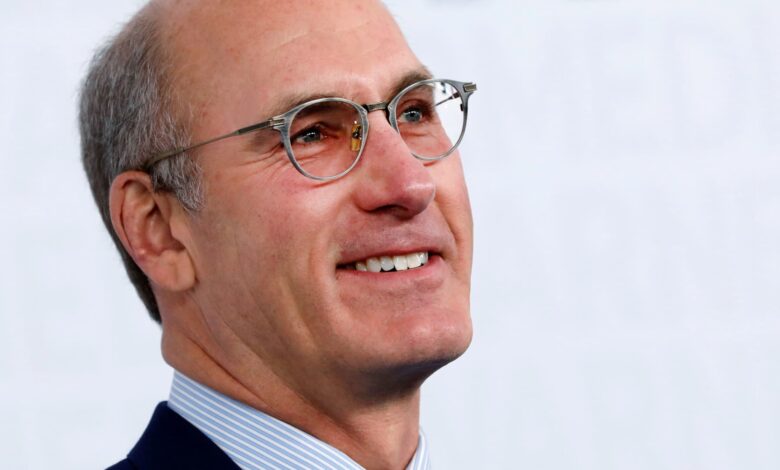AT&T asks the FCC to put extra guardrails on 5G spectrum acquisition

John Stankey, CEO of AT&T
Mike Segar | Reuters
AT&T said Wednesday it asked the Federal Communications Commission to add a special screening for coveted spectrum that could be used to build 5G, the next generation wireless network.
The company does not name competitors in its blog post announcing the petition. However, if adopted, the proposal could have significant consequences for AT&T’s chief rivals: T-Mobile and Verizon.
That’s because those players have amassed significant mid-band spectrum holdings, which are considered optimal for building out a 5G wireless network. T-Mobile gained significant spectrum through its highly-contested acquisition of Sprint, and Verizon won a large chunk of spectrum licenses in a closely-watched auction earlier this year.
AT&T has also made some gains, but significant debt has weighed down the company. That’s why an additional screen for mid-band spectrum sales could be particularly beneficial for AT&T, which does not want to get locked out of race for 5G coverage.
Joan Marsh. AT&T’s executive vice president for federal regulatory relations, wrote in the blog post that a mid-band spectrum screen would be similar to those already in place for other types of spectrum. She added that it would not cap the total amount of spectrum a company could hold.
Instead, it would give the agency an opportunity to look more closely for possible harms to competition. Marsh said a screen would be triggered when a spectrum acquisition would give a single entity more than a third of relevant frequencies in a given market area.
“To the extent that such blocks become unduly concentrated in the hands of one or two licensees, 5G competition is likely to falter,” Marsh wrote.
Democratic state attorneys general worried about the concentration of power in the hands of just a few wireless networks when T-Mobile proposed its merger with Sprint. But a court eventually allowed the deal to go through after the Trump Justice Department approved it.
Representatives from the FCC, T-Mobile and Verizon did not immediately respond to requests for comment on the petition.
Source link



